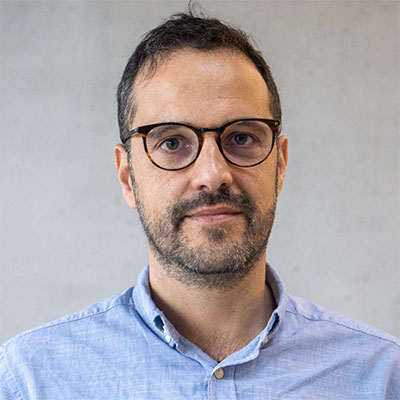ERA Chair Holder
Dr. Moura-Alves studied Biochemistry at Universidade da Beira Interior (Covilhã, Portugal), graduating in 2004. During his last year as a Biochemistry student, he undertook a research project at the University of Utrecht (The Netherlands). Soon after, he joined the Graduated Program in Areas of Basic and Applied Biology (GABBA) at the University of Porto (Portugal). In 2005, moved to Boston (USA) to start his PhD research project, joining the group of Prof. Dr. Bruce Walker (Partners AIDS Research Center/Massachusetts General Hospital/ Harvard Medical School). In 2007, returned to Portugal, joining the group of Dr. Luís Ferreira Moita (Instituto de Medicina Molecular- João Lobo Antunes, Lisboa, Portugal). After finishing his PhD in 2010, Dr. Moura Alves joined the group of Prof. Dr. Stefan Kaufmann at the Max Planck Institute for Infection Biology (Berlin, Germany), as a postdoctoral fellow. In March 2019, Dr. Moura Alves started his independent research group at the Ludwig Institute for Cancer Research/University of Oxford (Oxford, UK). As of February 2022, Dr. Moura Alves is an independent group leader and ERA Chair Holder (ImmunoHub) at the i3S (Instituto de Investigação e Inovação em Saúde/ Universidade do Porto (Oporto, Portugal).
Over the last years Dr. Moura-Alves studied host-microbe interactions, uncovering Pattern Recognition Receptors (PRRs) and signalling pathways triggered upon different bacterial infections, as well as the bacterial counterparts that participate in such crosstalk. Dr. Moura-Alves made a seminal discovery that the Aryl Hydrocarbon Receptor (AHR) mediates the recognition of different bacterial pigmented virulence factors, playing an important role in the regulation of immune responses to Pseudomonas aeruginosa and Mycobacterium tuberculosis infections, unveiling its role as a PRR. Later, he demonstrated that the AHR is able to “spy ” on bacterial communication systems and consequently regulate immune responses according to the infection status quo. In a more recent study, he showed that the AHR can act as a central actor in both host-defence and drug metabolism in Tuberculosis.
RESEARCH TEAM
